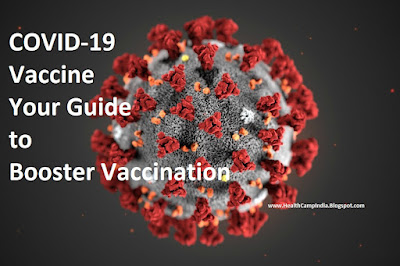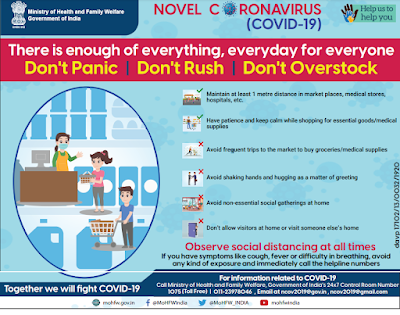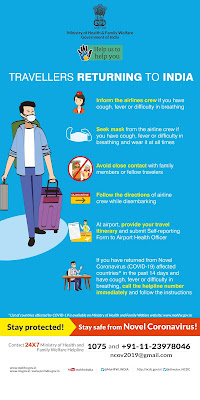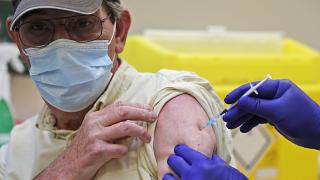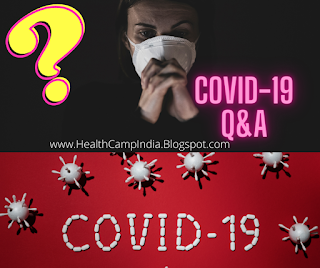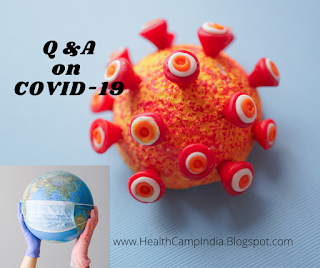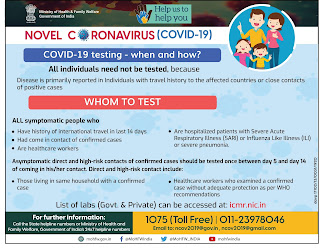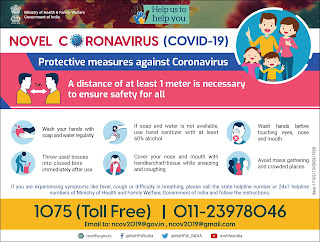pic source: click here
Guidelines for COVID-19 vaccination of children between 15-18 years and precaution dose to HCWs, FLWs & 60+ population with comorbidities
India’s National COVID Vaccination Program is built on scientific and epidemiological evidence, WHO guidelines and global best practices. Anchored in systematic end-toend planning, it is implemented through effective and efficient participation of States/UTs and the people at large.
Government of India’s commitment to the vaccination program has been unwavering and proactive from the beginning, from strengthening Research and Development capacity, to encouraging and enabling manufacturing and vaccinating each and every adult Indian safely, as fast as possible.
As a consequence of reliance on scientific & epidemiological evidence and pro-active implementation, India’s COVID-19 vaccination programme has achieved historical milestone of administering more than 141 crore doses so far. 90% of the adult population of the country has been covered with at least one dose and 62% of the adult population has been covered with both the doses.
For the COVID vaccination program, Government of India initiated early and proactive steps as far back as April 2020:
• “Task Force for Focused Research on Corona Vaccine” (constituted in April 2020), to encourage domestic R&D of Drugs, Diagnostics and Vaccines, headed by Principal Scientific Advisor to the Government of India.
• “National Expert Group on Vaccine Administration for COVID-19” (NEGVAC), (constituted in August 2020), to formulate a comprehensive action plan for vaccine administration, co-chaired by Member (Health) NITI Aayog and Union Health Secretary.
• “Empowered Group on Vaccine Administration for COVID-19” (constituted in January 2021), to facilitate optimal utilization of technology to make COVID vaccination all inclusive, transparent, simple and scalable, headed by CEO, National Health Authority.
India’s COVID vaccination program incorporates recommendations of the foremost experts in the field of immunization, public health, disease control and information technology. Based on scientific and epidemiological evidence, the programme gives priority to strengthening the country’s healthcare system by protecting the professionals, health and frontline workers, manning it, as well as protecting the most vulnerable population groups.
pic source: https://www.bbc.co.uk/news/uk-56111379
COVID-19 vaccination in the country commenced with vaccination to all Health Care Workers. The program was expanded with time to include vaccination of Front Line Workers, citizens more than 60 years of age, citizens more than 45 years of age, and eventually citizens more than 18 years of age.
Under the National COVID Vaccination Program, from 16th January to 30th April 2021, 100% of vaccine doses were procured by Government of India and provided free of cost to State Governments. State Governments were in turn to administer vaccination free of cost to defined priority groups.
To increase the pace of vaccination, participation of private hospitals was also enlisted where individuals could also choose to get vaccinated at a prescribed rate. In response to the suggestions of many State Governments to be permitted the flexibility to procure vaccine directly and administer them as per their own prioritization based on local requirements, Government of India revised the Guidelines.
Under the revised Guidelines effective from 1st May, 2021, Government of India was procuring 50% of the vaccine produced and was continuing to provide them to States free of cost for administering to priority groups.
The State Government and private hospitals were also empowered to directly procure from the remaining 50% vaccine pool. Many States subsequently communicated that they were facing difficulties in managing the funding, procurement and logistics of vaccines, impacting the pace of the National COVID Vaccination Program.
It was also noted that smaller and remoter private hospitals also faced constraints. Keeping in view the aforesaid aspects, the experiences gained from 1st May 2021 and the repeated requests received from States, the Guidelines for National COVID Vaccination Program were reviewed and revised.
These Revised Guidelines became effective from 21st June 2021. Under the Revised Guidelines, Government of India procured 75% of the vaccines being produced by the manufacturers in the country and provided it free of cost to States/UTs as has been the case from the commencement of the National Vaccination Programme.
These doses were administered by the States/UTs free of cost to all citizens as per priority through Government Vaccination Centres. Vaccine doses provided free of cost by Government of India have been allocated to States/UTs based on criteria such as population, disease burden and the progress of vaccination.
Wastage of vaccine has affected the allocation negatively. 3 Government of India has also provided States/UTs advance information of vaccine doses to be supplied to them. States/UTs were expected similarly, to further allocate doses well in advance to districts and vaccination centers.
They were also expected to put in the public domain the information about the above availability at district and vaccination center level, and widely disseminate it among the local population, maximizing the visibility and convenience of citizens.
In order to incentivize production by vaccine manufacturers and encourage new vaccines, domestic vaccine manufacturers were given the option to also provide vaccines directly to private hospitals.
This was restricted to 25% of their monthly production. Later on, it emerged that the off take of private hospitals was much below the aforesaid 25%. Therefore, the Govt. of India procured more than 75% of vaccines being produced by the manufacturers in the country. These vaccines were provided free of cost to the States/UTs.
All citizens irrespective of their income status have all along been entitled to free vaccination. Those who have the ability to pay are encouraged to use private hospital’s vaccination centres. The CoWIN platform provides every citizen the facility of conveniently and safely prebooking vaccination appointments.
All government and private vaccination centers also provide onsite registration facility, available both for individuals as well as groups of individuals, for which detailed procedure have been finalized and published by States/UTs, in order to minimize any inconvenience to citizens.
Keeping in view the recent global surge of COVID-19 cases, detection of Omicron variant which has been categorized as a Variant of Concern (VOC), scientific evidence, global practices and the inputs/suggestions of ‘COVID-19 Working Group of National Technical Advisory Group on Immunization (NTAGI)’ as well as of ‘Standing Technical Scientific Committee (STSC)’ of NTAGI it has now been decided to further refine the scientific prioritization & coverage of COVID-19 vaccination as follows:
1. COVID-19 Vaccination of children in the age-group of 15-18 years to be started from 3rd January 2022. For such beneficiaries, vaccination option would be “Covaxin” only.
2. As a matter of abundant precaution, for those Health Care Workers (HCWs) & Front Line Workers (FLWs) who have received two doses, another dose of COVID-19 vaccine would be provided from 10th January 2022. The prioritization and sequencing of this precaution dose would be based on the completion of 9 months i.e. 39 weeks from the date of administration of 2nd dose.
3. All persons aged 60 years and above with comorbidities who have received two doses of COVID-19 vaccine, will on Doctor’s advice be provided with a 4 precaution dose from 10th January 2022. The prioritization and sequencing of this precaution dose would be based on the completion of 9 months i.e. 39 weeks from the date of administration of second dose.
All citizens irrespective of their income status are entitled to free COVID-19 vaccination at Govt. Vaccination Centres. Those who have the ability to pay are encouraged to use Private Hospitals’ Vaccination Centres.
Co-WIN features and provisions:
1. HCWs, FLWs and Citizens 60+ with co-morbidities: a. All HCWs, FLWs and citizens aged 60 years or above with comorbidities will be able to access the vaccination for precaution dose through their existing Co-WIN account. b. Eligibility of such beneficiaries for the precaution dose will be based on the date of administration of 2nd dose as recorded in the Co-WIN system. c. Co-WIN system will send SMS to such beneficiaries for availing the precaution dose when the dose becomes due. d. Registration and appointment services can be accessed through both, the online and the onsite modes. e. The details of administration of the precaution dose will be suitably reflected in the vaccination certificates.
2. New beneficiaries aged 15-18 years:
a. All those aged 15 years or more will be able to register on Co-WIN. In other worlds, all those whose birth year is 2007 or before, shall be eligible.
b. Beneficiaries can self-register, online through an existing account on Co-WIN or can also register by creating a new account through a unique mobile number, this facility is available for all eligible citizens presently.
c. Such beneficiaries can also be registered onsite by the verifier/vaccinator in facilitated registration mode.
d. Appointments can be booked online or onsite (walk-in).
e. For such beneficiaries, option for vaccination would only be available for Covaxin as this is the only vaccine with EUL for the age-group 15-18. These Guidelines will come into effect from 3rd January 2022 & will be reviewed from time to time.
These Guidelines will come into effect from 3rd January 2022 & will be reviewed from time to time
Source: Ministry of Health and Family Welfare, GOI



